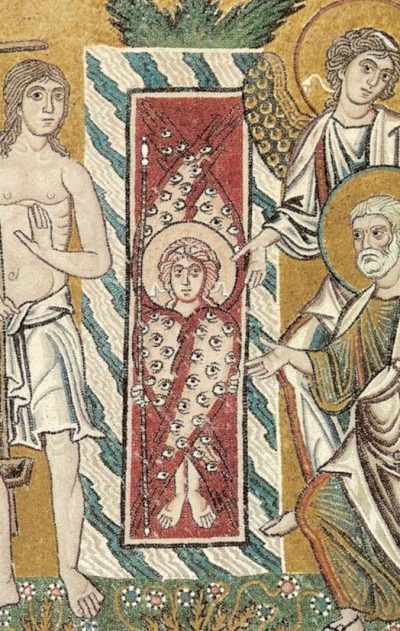Timorem Dei sibi ante oculos semper ponens (VII:3)

26 Jan. 27 May. 26 Sept.
The first degree of humility, then, is that a man, always keeping the fear of God before his eyes, avoid all forgetfulness; and that he be ever mindful of all that God hath commanded, bethinking himself that those who despise God will be consumed in hell for their sins, and that life everlasting is prepared for them that fear Him. And keeping himself at all times from sin and vice, whether of the thoughts, the tongue, the hands, the feet, or his own will, let him thus hasten to cut off the desires of the flesh.
Timorem Dei sibi ante oculos semper ponens. “The first degree of humility, then, is that a man, keep always the fear of God before his eyes.” How are we to understand this injunction of our father Saint Benedict? Clearly, it is fundamental and of primary importance, because he places it at the first step of humility. Abba Bessarion said on his deathbed: “A monk ought to be like the Cherubim and Seraphim, all eye.” Abba Bessarion’s reference is to Ezechiel 10:12. Ezechiel, the seer, has a vision of the divine throne room, and of the glory of the Lord, and of the cherubim.
And the glory of the Lord was lifted up from above the cherub to the threshold of the house: and the house was filled with the cloud, and the court was filled with the brightness of the glory of the Lord. And the sound of the wings of the cherubims was heard even to the outward court as the voice of God Almighty speaking. And I saw, and behold there were four wheels by the cherubims: one wheel by one cherub, and another wheel by another cherub: and the appearance of the wheels was to the sight like the chrysolite stone: and as to their appearance, all four were alike: as if a wheel were in the midst of a wheel. . . . And their whole body, and their necks, and their hands, and their wings, and the circles were full of eyes, round about the four wheels.(Ezechiel 10: 4–5, 9–10, 12)
